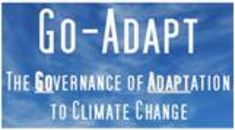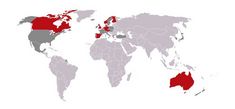| Stock Taking Survey |
The stock taking survey in 10 OECD countries aims to provide the first comparative account of how selected governments address adaptation to climate change across sectors and territorial scales in the light of uncertainties and faced with challenges of procedural justice. Taking stock of how national governments in 10 OECD countries tackle the four governance challenges is necessary because little is known about how governments deal with them, and because it is the only reliable way to identify interesting governance practices. Regarding the horizontal integration challenge, the latest IPCC report, for example, states that although the linkages between climate change mitigation and adaptation policies are close, “rarely have they been given similar priority and considered in conjunction” (Klein et al. 2007). Regarding the vertical integration challenge, Adger et al. (2005, 80), for example, emphasise, “Yet in examining adaptation, the dynamic nature of linkages between levels of governance is not well-understood, and the politics of the construction of scale are often ignored”. Thus, the purposes of the stock taking are (i) to give an overview of adaptation governance approaches employed at national and sub-national levels, and (ii) to guide the subsequent case study research.
Based on desk research and support from the advisory panel the following countries were selected for the survey: Australia, Austria, Canada, Denmark, Finland, Germany, The Netherlands, Norway, Spain and The United Kingdom. The selection process was guided by the following criteria:
| |
The stock taking bases on an analytical frame that combines the four governance challenges with analytical categories derived from related parts of the governance literature. These include the literature on policy integration, multi-level governance, risk governance, and participation. Based on the analytical framework, the actual stock taking starts with a desk research of academic literature, policy documents, government reports, and websites on the selected countries. In this phase, well documented governance approaches are identified and basic characteristics described. The desk research also identifies public administrators who are involved in the governance of climate change adaptation.
In a second step, the public administrators identified in the desk research are asked to complete a survey questionnaire in a telephone interview. The survey interviews add missing information on already identified governance approaches, and they are expected to bring forward additional governance approaches that are not documented well. |
| fileadmin/data/H03000/H73000/H73200/Go-Adapt/Go_Adapt__survey_results.pdf | Survey results - overview |
|---|



